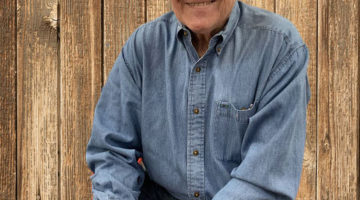Israel is a young country, only today celebrating its 60th birthday. Not only is the statehood young, but really everything about the nation glows with the idealism and energy of youth. Despite a rocky, ever-challenged existence, Israel continues to grow and flourish and strengthen its foundations.
 Unsettled, a documentary made by former MTV producer Adam Hootnick, uses a very specific moment in time to explore both the literal youth of the nation along with the country's youthful ideals.
Unsettled, a documentary made by former MTV producer Adam Hootnick, uses a very specific moment in time to explore both the literal youth of the nation along with the country's youthful ideals.In the summer of 2005 (though it feels like just yesterday) the Israeli government executed its plan to evacuate Jewish settlements in Gaza (officially called a withdrawal). This was done for the greater good according to the experts. The concept, which stands, is that simply based on population growth charts, Jews would never find a way to outnumber Arabs in the area, and therefore “occupying” the land would have been a hopeless pursuit.
To carry out the mission, Tzahal, an army seemingly composed of runway model Jewish boys and girls (mostly ages 18-24), needed to enter the settlements and face off against other Jews. While nothing can compare with the bravery and dedication of a soldier in the IDF, the settlers who raise families surrounded by those seeking to murder them, who take armored busses wherever they go, all for a passionate love of G-d, Torah, and land – they come close. The main difference between the two groups is that soldiers are trained, bred, and compelled to serve; the settlers, rather, are possessed by some stirring spirit and risk their lives (and their children's lives) by choice. Does that make them dangerous or wrong? Is a settler's personal zealousness, which requires soldiers who might not share their principles to protect them around the clock, madness? Is it ever a proper circumstance to pit a Jew against a Jew? Is caving in, and giving land back to Arabs suicide?
Unsettled provides interesting answers and opinions relating to all these questions, and more.
Hootnick, perhaps because of his MTV background (see interview, below), follows a number of young people (some more engaging than others) to bring the story to you from all sides. We get the guitar playing beach bum lifeguard from Gush Katif and his tefillin donning pal. We meet a pretty, frum, opinionated filmmaker who, along with her family, refuses to leave their settlement home. There is also the tall, skinny, strawberry haired, nose-pierced young woman who rallies for the evacuation of the settlements. Of course there are also two young soldiers introduced who are being trained to deal with settler resistance.
Not to say that the young interviewees and their plights are less than compelling, but Hootnick's true achievement is the footage of random protesters, settlers, and soldiers, engaged in the bitter conflict. The climax of the film, the actual evacuation process, is utterly stunning and unforgettable.
Surely the film's bright eyed surfers, activists, and soldiers, though self aware on camera, lend the film a very human perspective, but they can't but remain conscious of the image they wish to portray of themselves. However, the scenes of unidentified soldiers entering the homes of unidentified settlers, pleading with them, crying with them, singing and dancing with them, and eventually removing them physically, are some of the most heart swelling moments I have ever witnessed.
I left Unsettled slightly depressed for the sad condition that lead to the withdrawal in 2005, but even more-so proud of what a Jew is and that, simply by birth, I am counted amongst such a people.
I mentioned to a friend, last week that when I watched the film it coincided with parshat Kedoshim. That particular section of the Torah begins with the imperative for Jews to be holy, and not only has it been a constant struggle for the Jewish people to simply define what the term means, but surely to meet the standard.
I would venture to say that the conduct of both settlers being thrown form their homes and lives, and of soldiers taking on the difficult task, and clearly suffering along with their brethren in having to do it, gives one a glimpse, a faint understanding of what it might mean to be truly holy.
Interview with Adam Hootnick
BIO: Presuming that a documentary film is made based on a personal connection to the subject matter, how did you come to the material?
Hootnick: I had lived in Israel for a year after college, teaching at the American school there and then working at NBC News in Tel Aviv. Most of my friends were Israeli guys around the same age as I was. They were just out of the army (pretty much everyone has to serve in the IDF) but otherwise they were just like my American friends (almost none of whom went to the military)
 Unsettled, a documentary made by former MTV producer Adam Hootnick, uses a very specific moment in time to explore both the literal youth of the nation along with the country's youthful ideals.
Unsettled, a documentary made by former MTV producer Adam Hootnick, uses a very specific moment in time to explore both the literal youth of the nation along with the country's youthful ideals.










